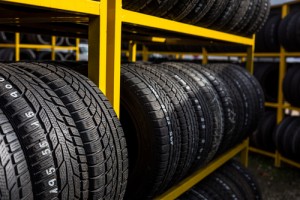 Last week, the United States Supreme Court issued its opinion in DirecTV v. Imburgia, 577 U.S. ___ (2015). This decision is important for manufacturers of consumer products because it fortifies the ability to incorporate and rely upon arbitration clauses as a way to reduce risk and overall litigation cost.
Last week, the United States Supreme Court issued its opinion in DirecTV v. Imburgia, 577 U.S. ___ (2015). This decision is important for manufacturers of consumer products because it fortifies the ability to incorporate and rely upon arbitration clauses as a way to reduce risk and overall litigation cost.
As most are well aware, arbitration clauses push contractual disputes and related claims out of court and into the realm of alternative dispute resolution. If binding and enforced, such clauses can provide faster adjudication and reduce litigation costs. With the increasing trend in class action consumer product litigation, arbitration agreements have evolved to include class arbitration waivers. Some states however, like California, prohibited such waivers. The Supreme Court in Imburgia made clear, once and for all, that the enforceability of unambiguous arbitration clauses is not a decision that is left to the states, but one that is governed by the Federal Arbitration Act. Read more ›

 A court in Harris County, Texas provided relief to Michelin North America Inc. in a case involving allegedly defective tires when it threatened to issue a writ of mandamus in favor of the tire manufacturer. The Texas appellate court conditionally granted Michelin’s request for the extraordinary relief on November 24, 2015, ordering a district judge to vacate an order granting plaintiff’s motion to compel permitting an inspection and videotaping of the defendant’s tire manufacturing plant. Although this Texas state appellate decision lacks precedential value beyond the state, it can be used as a guidepost for the type of arguments a court may find compelling when a manufacturer resists discovery regardless of venue.
A court in Harris County, Texas provided relief to Michelin North America Inc. in a case involving allegedly defective tires when it threatened to issue a writ of mandamus in favor of the tire manufacturer. The Texas appellate court conditionally granted Michelin’s request for the extraordinary relief on November 24, 2015, ordering a district judge to vacate an order granting plaintiff’s motion to compel permitting an inspection and videotaping of the defendant’s tire manufacturing plant. Although this Texas state appellate decision lacks precedential value beyond the state, it can be used as a guidepost for the type of arguments a court may find compelling when a manufacturer resists discovery regardless of venue. As most people are aware, social media has become pervasive in the daily lives of the vast majority of Americans. Social media provides us with an instantaneous way to share our thoughts and experiences with others. Doing so creates an electronic history that is stored and preserved, and, as the majority of courts have made clear, is ripe for discovery.
As most people are aware, social media has become pervasive in the daily lives of the vast majority of Americans. Social media provides us with an instantaneous way to share our thoughts and experiences with others. Doing so creates an electronic history that is stored and preserved, and, as the majority of courts have made clear, is ripe for discovery.
 Just last week, the Eastern District of Pennsylvania dismissed plaintiff’s negligence and §402(B) strict liability claims on summary judgment in
Just last week, the Eastern District of Pennsylvania dismissed plaintiff’s negligence and §402(B) strict liability claims on summary judgment in  Driving in America: It’s a task almost universally reviled by those with hour-long commutes, practically a right-of-way to adulthood, a pastime romanticized in films, and – maybe – a soon extinct activity? Ever since Google debuted the driverless car, people have questioned whether the technology could actually succeed. Now that companies are testing driverless cars out on the open road, the questions have shifted to liability. How will human drivers, driverless car companies, software companies, and insurance companies navigate liability in the event of an accident? Will driverless car companies go bankrupt from product liability lawsuits when the car makes a fatal decision and the human sits idly by?
Driving in America: It’s a task almost universally reviled by those with hour-long commutes, practically a right-of-way to adulthood, a pastime romanticized in films, and – maybe – a soon extinct activity? Ever since Google debuted the driverless car, people have questioned whether the technology could actually succeed. Now that companies are testing driverless cars out on the open road, the questions have shifted to liability. How will human drivers, driverless car companies, software companies, and insurance companies navigate liability in the event of an accident? Will driverless car companies go bankrupt from product liability lawsuits when the car makes a fatal decision and the human sits idly by? 